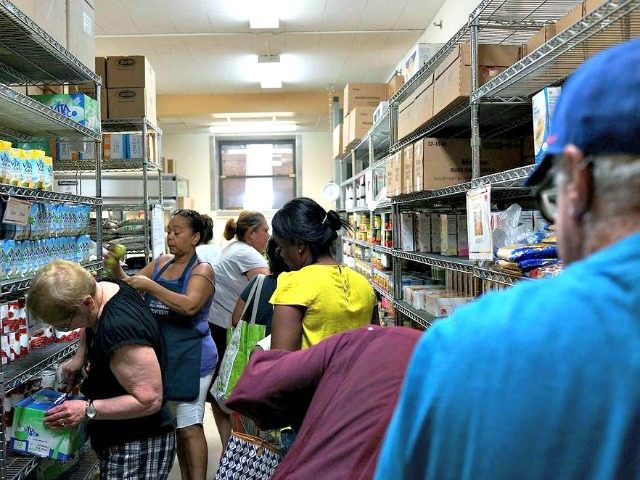A new Gilded Age
has emerged in America — a 21st century version.
The
wealth of the top 1% of Americans has grown dramatically in the past four decades, squeezing both
the middle class and the poor. This is in sharp contrast to Europe and Asia,
where the wealth of the 1% has grown at a more constrained pace.
Josh Hawley: Coronavirus Cash Payments Must Be Available to Poor Americans

2:42
Sen. Josh Hawley (R-MO) has drafted an amendment to a Republican plan that will ensure millions of very low-income, poor Americans are eligible for $1,200 or more in federal payments in the midst of the coronavirus crisis.
Current legislation to give a quasi-Universal Basic Income (UBI) to Americans excludes those making under $2,500 or less a year. These are the lowest, poorest Americans and also American college students who do not necessarily work all year long.
Hawley’s amendment would end that income threshold and give money all Americans with a Social Security Number or Individual Taxpayer Identification Number.
“Relief to families in this emergency shouldn’t be regressive,” Hawley wrote online. “Lower-income families shouldn’t be penalized.”
Cash to Americans — a plan originally touted by businessman Andrew Yang as a permanent program that would replace all existing forms of welfare — was most recently touted by Breitbart News’s Economic Editor John Carney, who called on Congress to implement a policy in which every American, including those earning over $75,000 a year, are sent the payment:
We need to put cash into the hands of the American people as quickly as possible. [Emphasis added]I propose $1,000 of cash for every U.S. citizen. A family of four gets $4000 per month for the duration of the crisis. Bigger families get more. This boost of income will allow Americans to build emergency savings without having to drastically cut down on their spending. [Emphasis added]This will not stop all the job losses but it will make them less painful. More importantly, it will make it far less likely that we go from stage one to stage two. It will make it more likely that the economic emergency can be contained to frontline effects. [Emphasis added]
Millions of American workers have been forced to stay home from their jobs, as restaurants, bars, and other businesses have been required to close in many states.
These service industry workers generally rely on tips and minimum wage to pay their rent, mortgage, and other monthly bills. Often, they have no longtime financial security in place to tap into during emergency situations.
In total, the latest JPMorgan Chase analysis finds that about one-in-four American families do not have any savings and nearly half of Americans would struggle to pay $400 to cover an emergency.

No comments:
Post a Comment